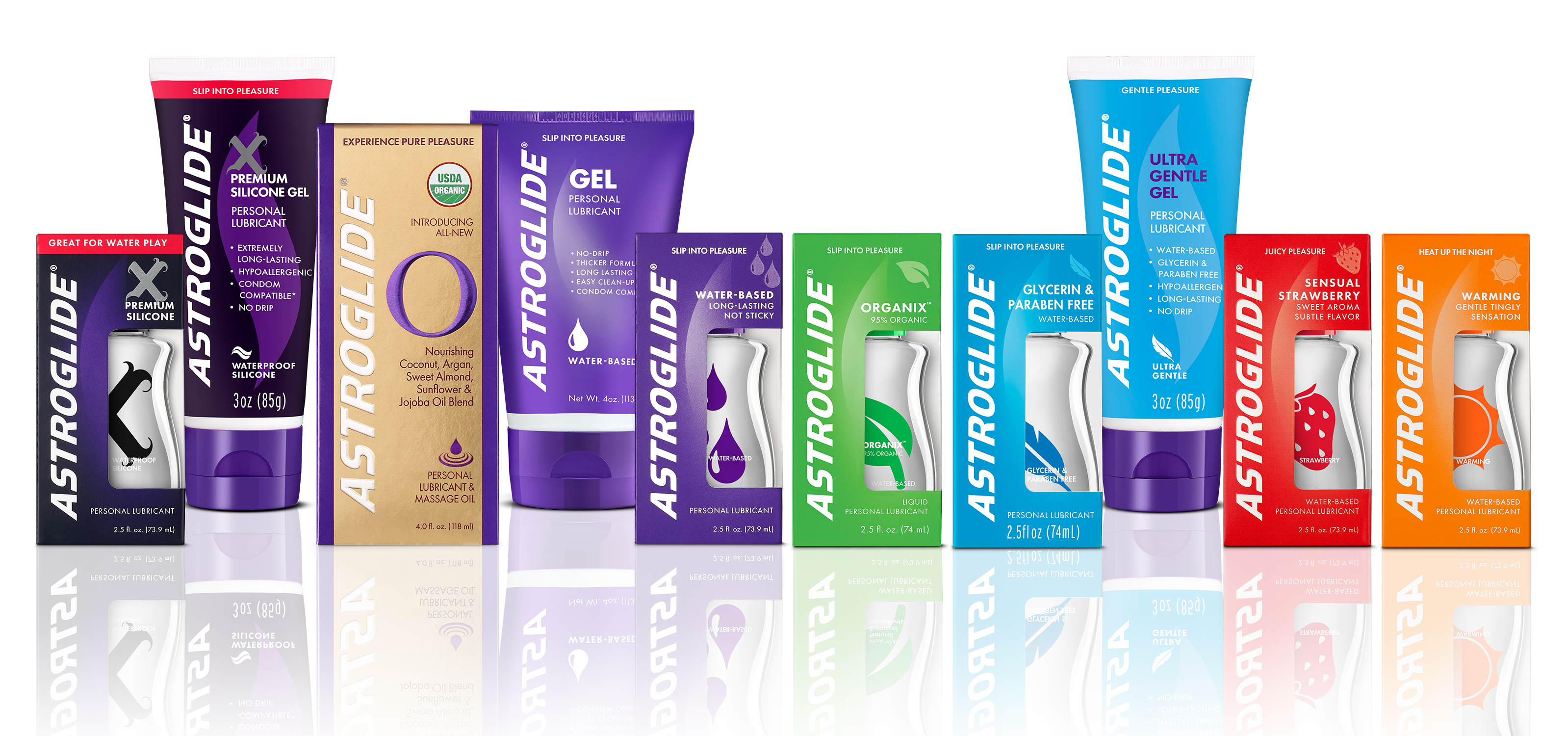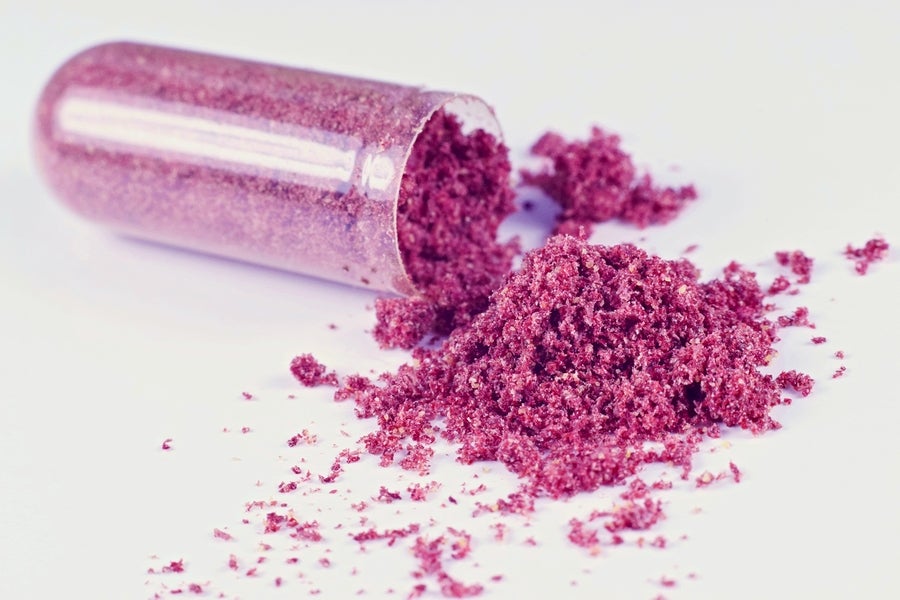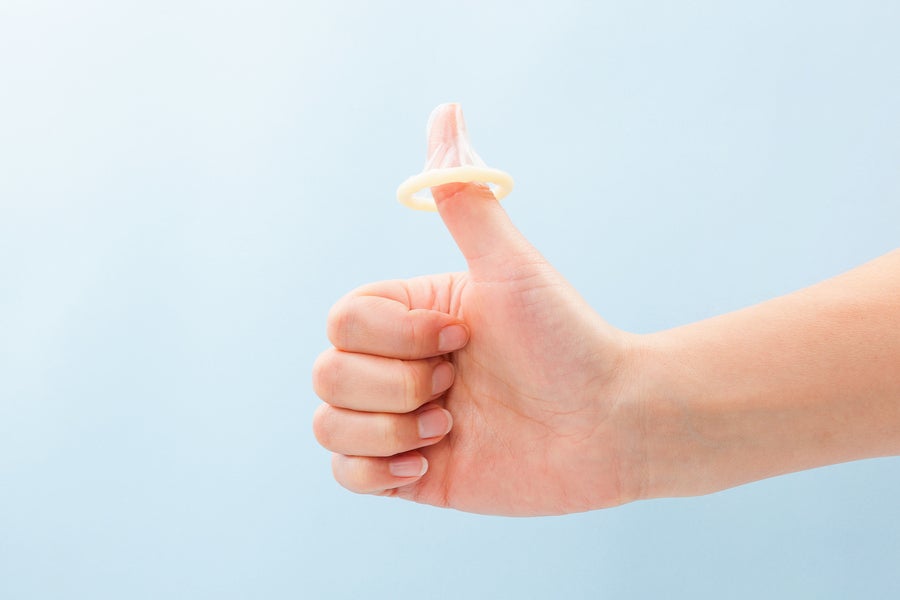10 Things You Can Do During and After Sex to Improve Your Vaginal Health
Sexual Health
Use (the Right Kind) of Lube
If you’re sensitive to certain lube ingredients, consider lubes made with gentle formulas like ASTROGLIDE Ultra Gentle Gel, which has been allergy tested and is made without glycerin, parabens, fragrances or alcohol. For a soothing and hydrating experience, you can also try ASTROGLIDE Glycerin & Paraben Free Liquid, a water-based lube formulated to be hypoallergenic and compatible with both sex toys and condoms. You might also want to check out ASTROGLIDE X Silicone Liquid, which is hypoallergenic with only two ingredients, has a nice, silky feel and is extremely long lasting.
Click here for a free sample of ASTROGLIDE Liquid, ASTROGLIDE Gel or ASTROGLIDE X Silicone Liquid.

Hit the Bathroom to Prevent Burning After Sex
A common complaint among women who get frequent urinary tract infections (UTIs) is that their vagina burns after sex.
Dr. Tola Fashokun, a gynecologist at Johns Hopkins Women’s Center for Pelvic Health and Reconstructive Surgery, says this can happen for a few different reasons.
In some women, just the act of sex itself is enough to introduce bacteria into the urinary tract. For menopausal women, changes in vaginal pH can sometimes alter the body’s natural flora, making UTIs more likely. Dr. Fashokun also says a weakened immune system can raise a woman’s risk of experiencing burning urination after intercourse.
Peeing after sex can help flush out any bad bacteria from the urethral opening and keep any burning sensations to a minimum. As soon as you’ve finished in the bedroom, the bathroom should be your next stop. Dr. Fashokun adds that wearing loose clothing can also help, so you might want to skip the thongs for a while if you feel any kind of burning after sex.
“Skip the thongs for a while if you feel any kind of burning after sex.”
It’s also important to go right away whenever you have the urge to pee. In other words, holding it is something you should avoid. According to urologists, holding your urine over extended periods of time gives bacteria a chance to multiply, which can lead to a UTI.
A Cranberry Supplement May Prevent Burning After Sex

If you’re a UTI pro, you’ve most likely heard this one before.
Before you guzzle a glass of cranberry juice, however, experts say it’s important to check the label, as many cranberry juice manufacturers add sugar to their products. These sugars can actually encourage bad bacteria to multiply, raising your UTI woes to a whole new level.
However, a cranberry supplement might help.
Cranberries contain a natural substance that stops E. coli bacteria from adhering to the bladder wall, which might help prevent burning after sex. Some studies show that cranberries can inhibit adherence by 75 percent or more.
Unlike cranberry juice or cocktails, supplements are less likely to contain sugar. Even so, it’s important to check the label carefully before you buy — and you should always talk to your doctor before starting a new vitamin or supplement.
If cranberry supplements don’t deliver the good vaginal health you’ve been hoping for, Dr. Courtenay Moore at the Cleveland Clinic says a good probiotic might be an excellent alternative. According to Dr. Moore, you’ll want to pick one that contains lactobacillus, which is a good bacteria that helps colonize the vagina and restore proper pH.
If you don’t like taking supplements, you can also get probiotics the natural way by eating foods like plain Greek yogurt and cheese. The drink kefir also contains probiotics that may promote good vaginal health.
Douching Won’t Help Burning After Sex
Despite those breezy commercials featuring walks on the beach, douching isn’t really all that good for your vaginal health — and it can sometimes hurt it.
According to the U.S. Department of Health and Human Services Office on Women’s Health, douching can lead to a host of medical issues, including an increased risk of UTIs and sexually transmitted diseases. It can also make it more difficult to get pregnant if you’re trying to conceive.
Douching has also been linked to yeast infections, as it washes away good bacteria and natural flora in the vagina.
While some women believe they need to douche to clean their vagina, this is inaccurate. The vagina is self-cleaning, and it’s naturally equipped to expel blood, semen and vaginal discharge.
Douching can actually disrupt the delicate balance of good and bad bacteria, which can lead to UTIs.
Stay Hydrated
You probably already know that water is good for your health. Avoiding UTIs and the discomfort they bring can be as simple as staying hydrated.
WebMD reports that a new study from the University of Miami reveals that women who drank enough water during the day had “a significant reduction in their odds for a recurrence of the common [UTI] infections.”
So how much water do you really need? The Mayo Clinic recommends about 11.5 cups (2.7 liters) for women each day and 15.5 cups (3.7 liters) for men. If you find it tough to chug water throughout the day, you can try adding some non-sugary fruits for flavor. Many people enjoy water with cucumber and lemon or even a few sprigs of mint. You can find a treasure trove of flavor-infused water recipes online that will actually make you look forward to getting your recommended daily water intake.
Use Condoms with a New Partner

When it comes to new love, you only want to feel one kind of burning — and that’s the burn in your heart. Every person has their own unique biology, and they might carry bacteria that disrupts your pH — leading to burning after sex.
According to experts, using condoms can help prevent new bacteria from entering your system, and one study showed that regular condom use during sex helps increase the colonization of good bacteria in the vagina. Researchers also found that the presence of this good bacteria helps reduce cases of bacterial vaginosis and the HIV virus.
Of course, if you have a latex allergy, you’ll want to opt for non-latex condoms made of polyurethane or polyisoprene (learn about the three main types of condoms in this article!). Your vagina is one place you really don’t want to experience an allergic reaction.
Wear Loose-fitting or Cotton Underwear
We all need some air from time to time, and your vagina is no exception. Tight or ill-fitting underwear can actually leave you vulnerable to UTIs and yeast infections.The same goes for workout clothes, which can trap moisture close to the body and create a breeding ground for bacteria.
It’s also important to choose the right kind of fabric. Dr. Melissa Goist, an Ob-Gyn at The Ohio State University Wexner Medical Center told Health that cotton is best because of its breathability. By contrast, synthetic fabrics tend to trap moisture, which can encourage the growth of bacteria.
Experts say you can also reduce your chances of developing a UTI or yeast infection after sex by going commando at bedtime. This gives your delicate parts a chance to breathe and keeps bacteria away from the vagina. You should also change out of wet clothes or a bathing suit as soon as possible, as trapping moisture close to your lady parts could cause a yeast flare-up.
Wipe the Right Way
That is, front to back — every time. Because the female urethral opening is located so close to the rectum, it’s easy for E. coli bacteria to make their way into the urinary tract and cause burning after sex. Because about 90 percent of all UTIs are caused by E. coli infections, keeping this bacteria away from the urethra can stop many flare-ups in their tracks.
Doctors say you should also avoid cleansing wipes or other kinds of damp wipes, as they can contain harsh chemicals that may irritate sensitive vaginal tissues. Sprays (which usually contain perfume or other fragrances) are also a no-no for the same reason.
The front to back rule also extends to sex itself. If you engage in any kind of anal sex or play, it’s important to avoid introducing bacteria into the vagina through contact with the rectum.
This means you should never move sex toys or parts of the body from the anus to the vagina without thoroughly washing them first. Check out our guide to sex toys for couples for tips on keeping them clean.
Hit the Shower After Sex

After a bout of mind-blowing sex, showering may be the last thing on your mind. You might prefer drifting off to sleep in your partner’s arms, but this can lead to a painful and inconvenient UTI by morning. This is why it’s important to shower after sex. Rinsing off or even wiping down with a damp cloth can help you avoid a nasty UTI down the road.
Many people like to use scented soaps or other hygiene products, but experts say you don’t need them — and anything scented has the potential to prompt an infection if you have sensitive skin. Mild soaps might be okay, but you can get just as clean with plain water.
Jumping up for a shower after sex doesn’t have to ruin the mood. You can extend your play time with some kinky shower sex or a steamy scrubdown session for two.
Don’t Skip the Doctor
While UTIs and yeast infections are unfortunately common, it’s important to take them seriously.
The burning, itching, discomfort and — in the case of UTIs — overwhelming urge to pee are bad enough, but a UTI or yeast infection left unchecked can turn into something much more serious.
If you let your UTI go without treatment, the bacteria can travel deeper into your urinary tract, eventually finding its way into the bladder and kidneys. According to the Mayo Clinic, this can permanently damage your kidneys and even lead to a life-threatening blood infection.
If you suspect you have a yeast infection, it’s important to know that some serious vaginal conditions can present similar symptoms — and you might not realize there’s something more problematic going on downstairs. While most yeast infections are easy to treat, bacterial vaginosis typically requires a prescription from your doctor. If you suspect you’re suffering from a yeast infection for the first time, however, experts say you should get it checked out by your doctor.
Additionally, you should make it a point to see your Ob-Gyn for regular check-ups and testing. If you’re in a cycle of constant UTIs or yeast infections, your doctor may be able to help you figure out why they’re occurring and how to stop them. For example, hormonal shifts as well as certain kinds of birth control can sometimes make women more prone to vaginal infections.
11 Symptoms of Urinary Tract Infections (UTIs)
When it comes to UTIs, it’s always important to take them seriously, as they can progress rapidly. Even if you’ve had a UTI before, it’s important to be aware of the full range of possible symptoms. According to Everyday Health, you should keep your eye out for symptoms like:
-
Pain or discomfort
-
Frequent urge to pee, even when you don’t need to go
-
Pressure or cramping in the abdomen
-
Pelvic pain
-
Blood in your urine
-
Stinging or burning when you pee
-
Cloudy urine
-
Fever or chills
-
Urine that smells bad
-
Passing small amounts of urine
-
Burning pain during sex
If you feel any of the possible signs of a UTI, you should see a doctor right away.
It’s always better to get treatment sooner rather than later, as a serious infection can cause a potentially dangerous health problem. If you’re diabetic, it’s especially important to see a doc if you feel a UTI coming on, as what seems like a simple infection can lead to more serious complications.
If you can’t get an appointment for a day or so, urologists say you can minimize any discomfort by drinking plenty of water. This helps dilute your urine and may start flushing out bacteria, so you can get a head start on eliminating the infection. You can also try eating plain yogurt with no sugar, although most doctors say you’ll probably need a dose of antibiotics to kick the UTI to the curb for good.
What are your tricks for fending off UTIs and yeast infections?
Let us know by tweeting us @ASTROLIDE.
